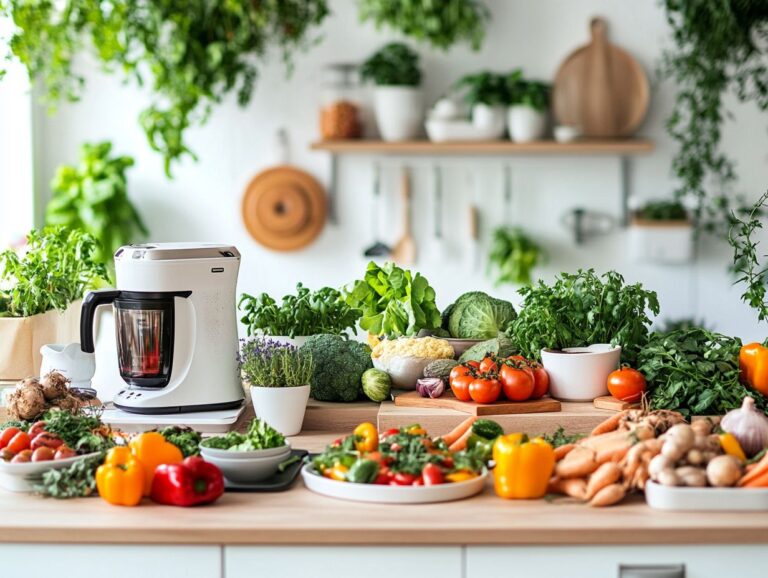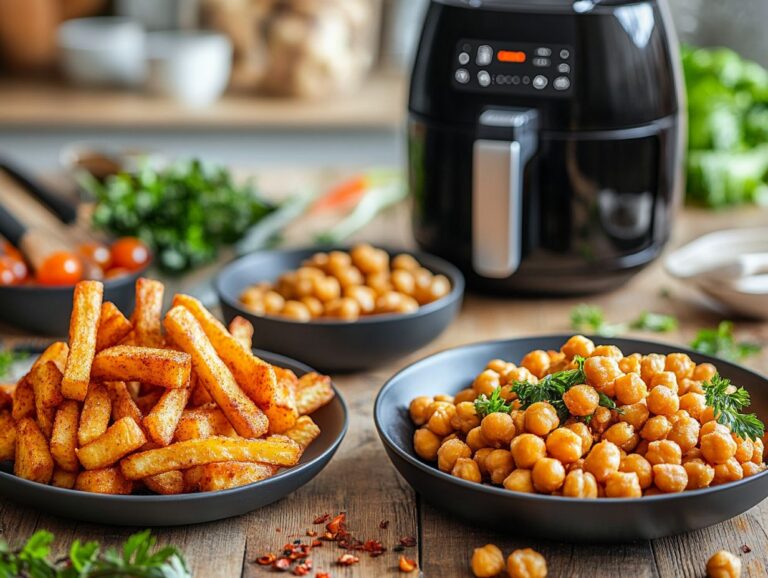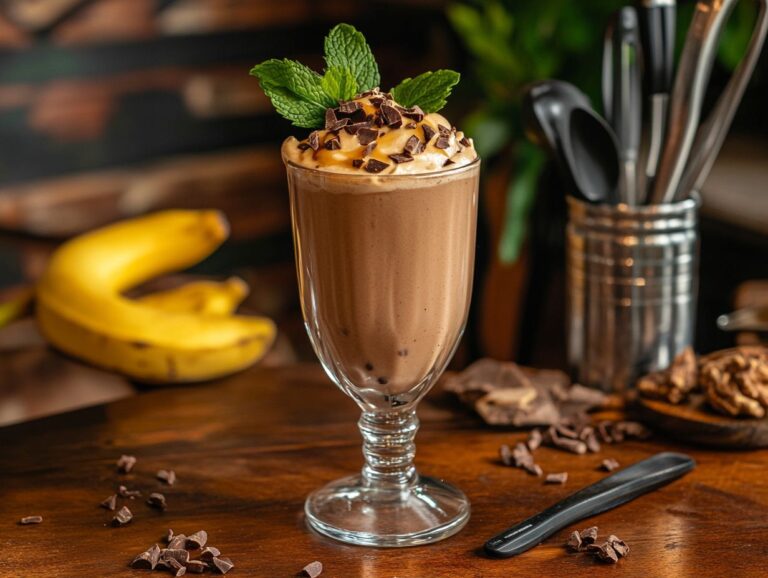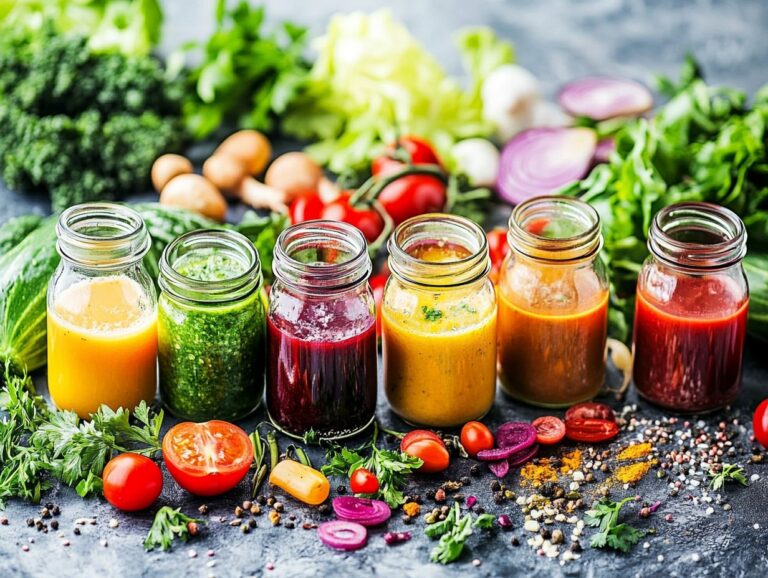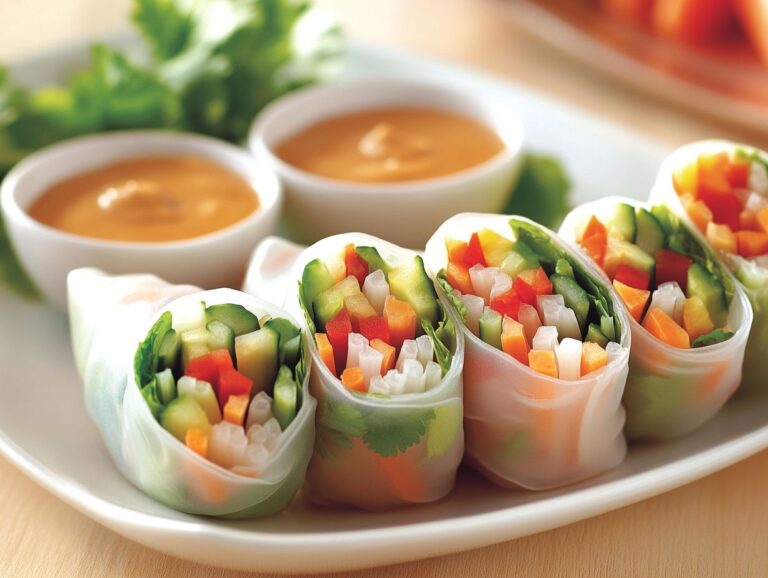Curious about the raw vegan diet and its benefits? This article will guide you through the essentials of embracing a fresh, clean diet approach to eating, highlighting the importance of plant-based nutrition and whole foods.
From understanding the health and environmental perks to learning how to prepare delicious meals, find essential ingredients, handy kitchen tools, and a variety of easy recipes for breakfast, lunch, dinner, snacks, and desserts, including smoothies and salads.
Additionally, discover tips to help you stay consistent and meet your nutritional needs on this vibrant journey, focusing on nutrition education and holistic nutrition. Dive in and explore the world of raw veganism!
What is a Raw Vegan Diet?
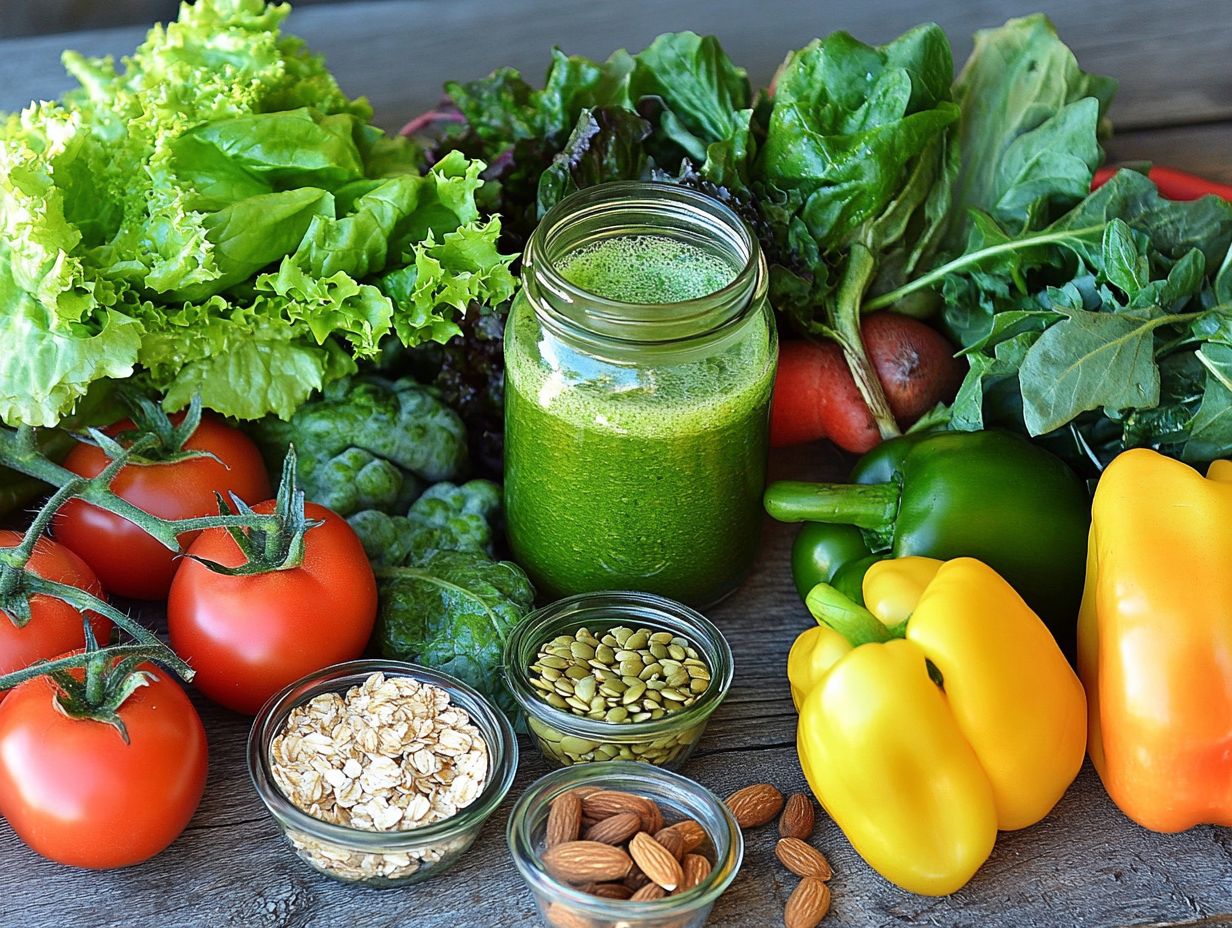
A raw vegan diet is a lifestyle choice that merges the principles of veganism with the consumption of unprocessed and uncooked foods. This approach emphasizes a variety of nutrient-dense options, including raw fruits, vegetables, sprouted grains, and nuts. By focusing on whole foods and clean eating, individuals can thrive on a fresh diet that is rich in antioxidants, essential vitamins, and healthy fats, while also promoting ethical dining and sustainable eating practices through intuitive eating and mindful eating.
Adopting this type of diet can lead to numerous health benefits, such as enhanced immune support and improved digestive health, as the absence of processed ingredients ensures maximum nutrient retention and detox benefits. Incorporating a wide array of colorful produce not only creates a vibrant plate with vibrant colors but also enhances overall well-being.
Each meal reflects the values of the vegan lifestyle, reinforcing a connection to environmental sustainability and animal welfare.
Sourcing ingredients from local, organic farms further enriches this experience, as fresh, whole components amplify the flavors and textures characteristic of a raw vegan lifestyle.
Benefits of a Raw Vegan Diet
A raw vegan diet offers numerous benefits for personal wellness and overall well-being, as it is rich in antioxidants, fiber, and other nutrients that promote weight loss and detoxification, while supporting immune support.
A raw vegan diet offers numerous benefits for personal wellness and overall well-being, as it is rich in antioxidants, fiber, and other nutrients that promote weight loss and detoxification.
This dietary approach fosters ethical dining and conscious eating by encouraging the consumption of organic vegetables and seasonal produce, supporting food sustainability and local sourcing.
Health and Environmental Benefits
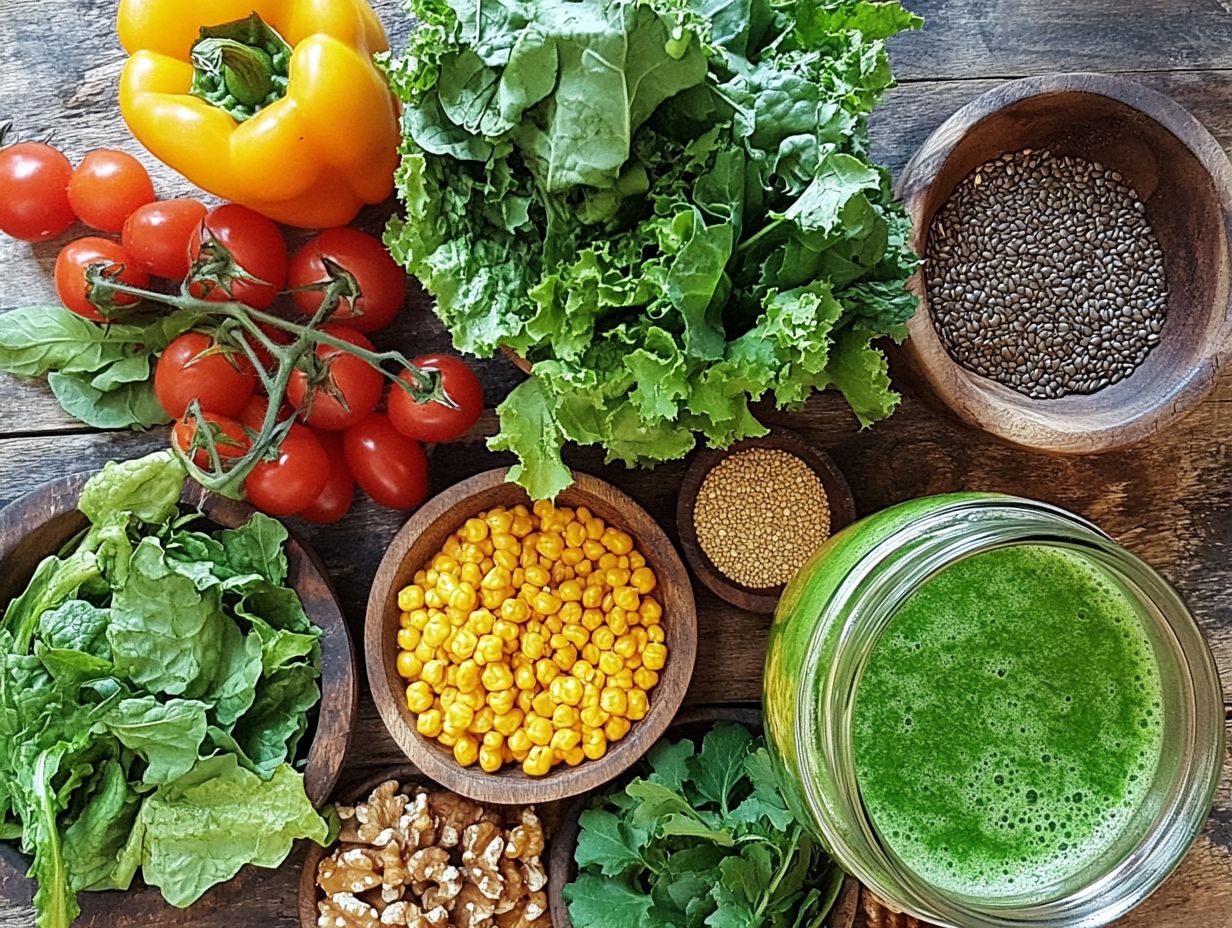
The health and environmental benefits of a raw vegan diet are interconnected, as healthy eating habits promote practices that are beneficial for both individuals and the environment through sustainable eating. This approach reduces reliance on processed foods while encouraging the consumption of organic vegetables, seasonal produce, and plant-based proteins, leading to more ethical and environmentally friendly food systems, supporting food sustainability and ethical eating.
Raw vegan diets also enhance digestion; the high fiber content in fruits and vegetables supports gut health. Additionally, these diets are beneficial for weight management. A study published in the Journal of Nutrition found that individuals who consumed more raw foods tended to have a lower body mass index compared to those following conventional diets. The antioxidants present in raw foods bolster the immune system’s ability to protect the body.
Beyond individual health benefits, adopting a raw vegan lifestyle is associated with a lower carbon footprint. Research indicates that plant-based diets can reduce greenhouse gas emissions by 35-50%, thereby supporting sustainable eating. Thus, individuals not only contribute to their own health but also play a role in promoting a healthier planet.
How to Prepare Raw Vegan Meals
Preparing raw vegan meals involves a blend of culinary creativity and an understanding of essential culinary techniques to craft delicious and nutritious dishes without the need for cooking, utilizing simple ingredients and creative recipes.
By utilizing whole ingredients—ranging from fresh herbs and organic vegetables to superfoods—individuals can create a variety of flavorful meals that align with their dietary preferences while promoting health-conscious eating and mindful consumption, focusing on nutrient density and taste balance.
Essential Ingredients and Equipment
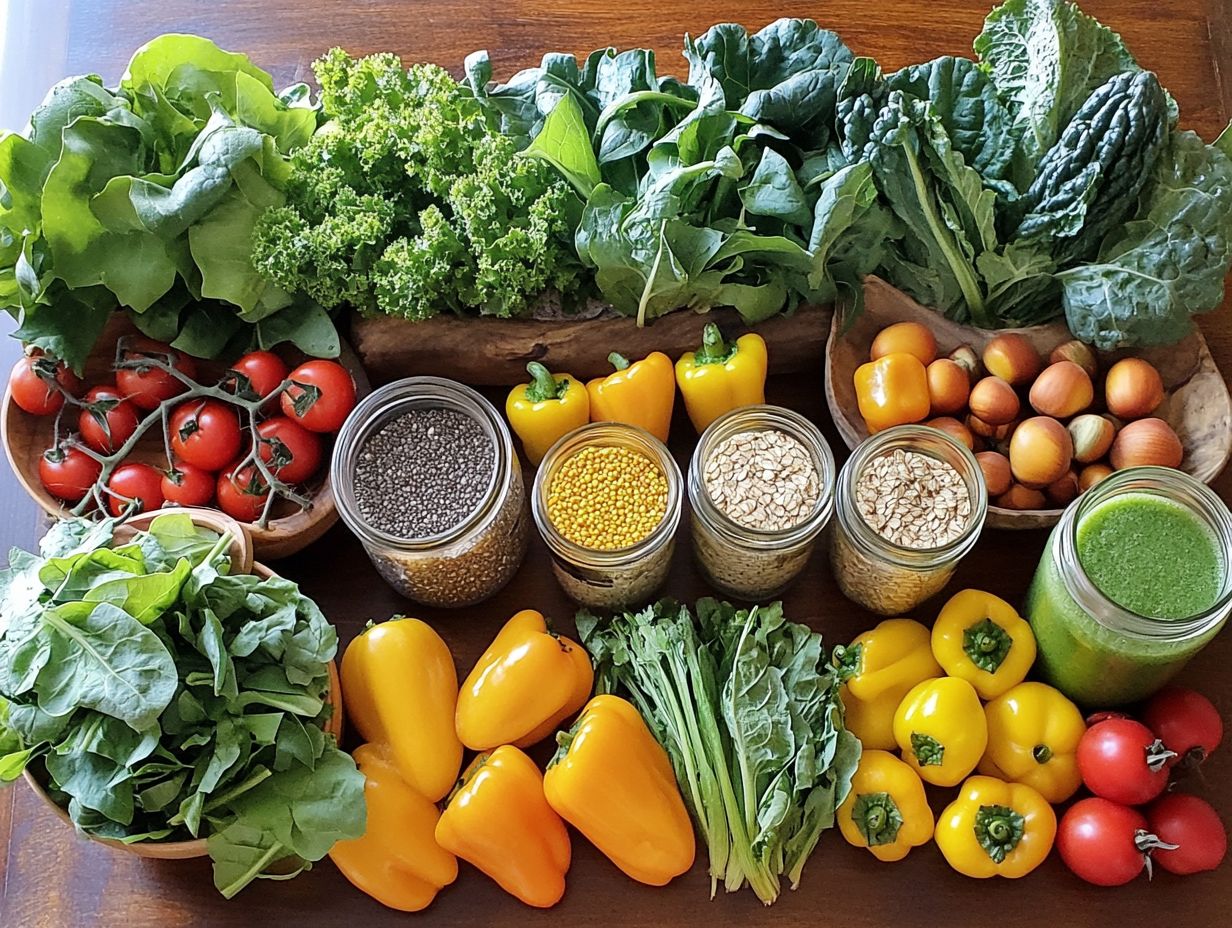
Essential ingredients for raw vegan meals include a diverse array of raw fruits, vegetables, nuts, seeds, and superfoods that are both flavorful and nutrient-dense. Complementing these ingredients are kitchen tools that facilitate easy meal preparation, enhancing food presentation and flavor profiles.
For instance, blenders are useful for making smoothies and raw soups, while spiralizers can turn vegetables into zoodles or be used for crafting raw desserts. Having the right equipment can significantly enhance the efficiency of creating healthy recipes, supporting food processing and preparation methods.
- Fresh leafy greens, such as kale, spinach, and Swiss chard, are abundant in important vitamins A, C, and K.
- Avocados, often used as a substitute for butter or cream in various dishes, are rich in healthy fats that aid in the absorption of nutrients from other foods.
- Nuts like almonds and walnuts are excellent sources of vegan protein and omega-3 fatty acids.
- Seeds such as chia and flax are packed with fiber and antioxidants.
- Superfoods like spirulina and raw cacao can also enhance the nutritional profile of any recipe, offering options that are gluten-free and dairy-free.
Since very few recipes rely solely on one food group, it is beneficial to source ingredients from multiple categories, ensuring meal diversity and flavor enhancement. To maintain their flavors and prevent spoilage, ingredients should be stored in airtight containers and kept in a cool, dark place.
Easy and Delicious Raw Vegan Recipes
Simple and delicious raw vegan recipes can transform meals into exciting culinary experiences. They provide a wide range of quick meal ideas and casual dining options that cater to diverse tastes and dietary preferences, all while promoting a nutrient-dense and vibrant diet, perfect for energy boosting and weight management.
These recipes often showcase seasonal produce and emphasize a variety of flavors and textures through the use of fresh ingredients and healthy fats, supporting recipe customization and flavor profiles.
Breakfast Recipes
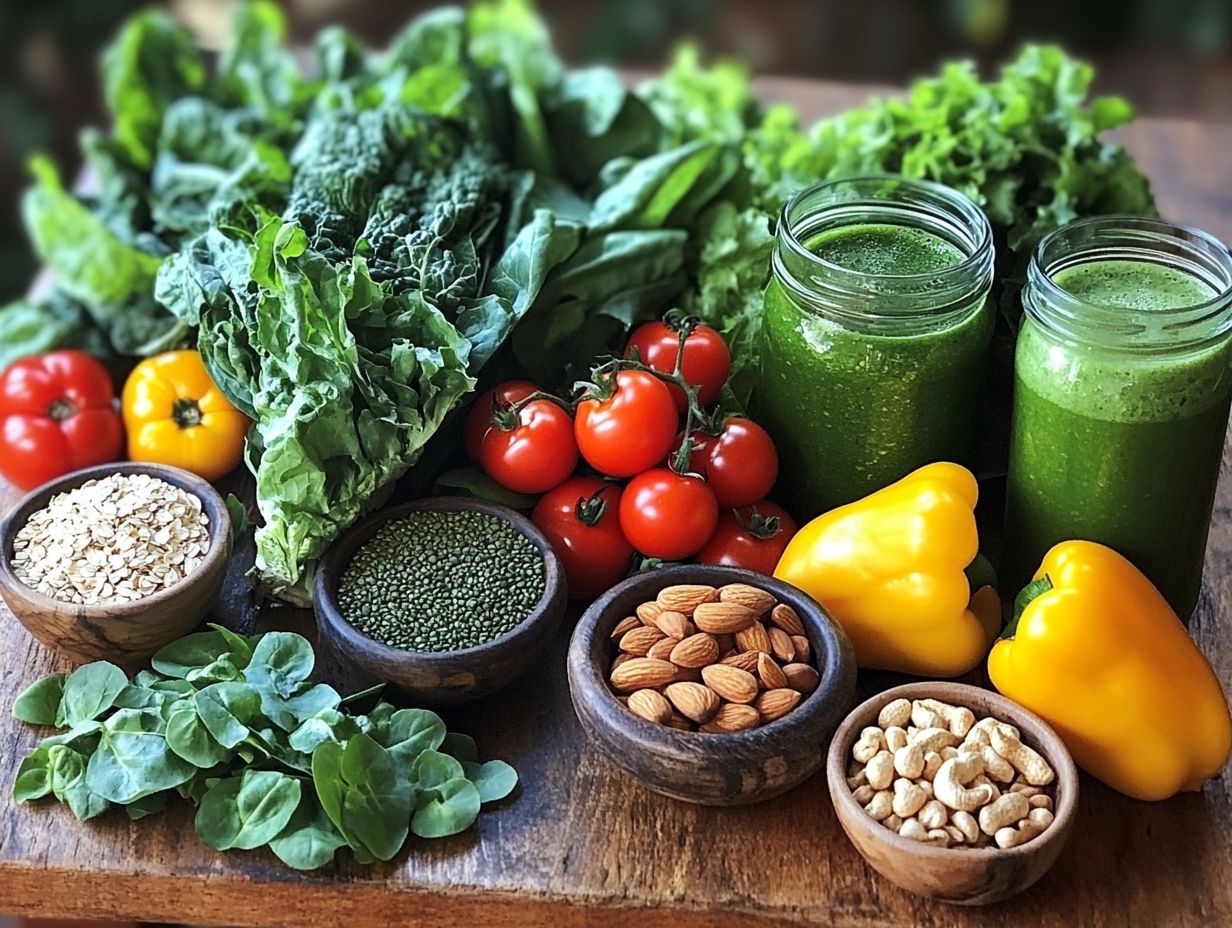
Brighten and enhance your mornings with these delicious raw vegan breakfast recipes. From refreshing smoothies to creamy chia puddings and energizing energy balls, these raw vegan breakfasts provide healthy and invigorating ways to kickstart your day, offering high-energy meals that are enzyme-rich and fiber-rich.
They are also perfect for busy mornings, as they can be prepared quickly while remaining filling, supporting meal prep and meal planning. Additionally, these recipes are easy to customize according to personal tastes and dietary needs, including low-glycemic and low-calorie options.
For instance, smoothies can be made with almond milk or coconut water as a base, and you can incorporate fruits such as bananas, berries, or even spinach for added nutrients, enhancing hydration and nutrient density.
Chia puddings can be sweetened naturally with natural sweeteners like maple syrup and topped with nuts and seeds for extra texture and protein, demonstrating food pairing and recipe variations.
Energy balls can feature various nut butters, dried fruits, or superfoods like cacao nibs for a delightful flavor. You can even prepare them the night before for a quick and convenient raw vegan breakfast, showcasing creative recipes and food combinations.
Lunch and Dinner Recipes
Lunch and dinner can be made exciting with a variety of raw vegan recipes that highlight the versatility of fresh ingredients, including vibrant salads, comforting raw soups, and flavorful dips. These meals not only focus on plant-based nutrition but also offer endless opportunities for culinary creativity and personal expression, supporting lifestyle changes and recipe sharing.
To truly enhance your dining experience, consider incorporating a medley of seasonal vegetables, such as crisp cucumbers, juicy tomatoes, and hearty carrots, all complemented by zesty dressings made from citrus juices and herbs.
For a refreshing lunch, try a quinoa and avocado salad tossed in lime vinaigrette, paired with a tangy raw beet dip for added flair. Dinner can become a gourmet affair with a chilled gazpacho featuring ripe peppers, fresh herbs, and a hint of olive oil, served alongside marinated zucchini rolls.
The health benefits of these ingredients, which are rich in antioxidants, essential vitamins, and healthy fats, not only promote a vibrant lifestyle but also keep meals deliciously satisfying, supporting holistic nutrition and intuitive eating.
Snack and Dessert Recipes
Snack and dessert recipes in the raw vegan realm are both healthy and satisfying, offering delicious options for when you want to indulge or boost your energy levels, supporting vegan snacks and raw desserts.
Raw desserts, such as cheesecakes and mousses, along with snacks like nut butters, energy balls, and raw granola, can be enjoyed at any meal—breakfast, lunch, dinner, and of course, dessert, supporting food culture and culinary exploration.
These recipes incorporate wholesome ingredients, including fresh fruits, nuts, seeds, and natural sweeteners like dates or maple syrup. The flavor and texture combinations can easily be adapted to accommodate individual dietary preferences, including gluten-free, nut-free, and low-sugar variations, highlighting recipe customization and dietary restrictions.
For instance, nuts can be substituted with seeds to maintain the crunchy and creamy qualities typical of desserts, and adding a hint of cacao or superfoods like spirulina can enhance both flavor and nutritional value.
Tips for Maintaining a Raw Vegan Diet
A raw vegan diet can be successfully adopted by understanding the nutritional needs of raw foods, ensuring access to adequate calorie-dense meals that are both fulfilling and energizing, and utilizing effective meal planning, recipe sharing, and community cooking to make the preparation of raw meals easier and more enjoyable, supporting community engagement and cooking classes.
Staying Consistent and Meeting Nutritional Needs
Staying consistent on a raw vegan diet requires ensuring that you obtain the right nutrients through sufficient food diversity and combinations. This means incorporating a wide variety of raw foods into your meals to provide diverse sources of plant proteins, healthy fats, and fiber-rich options, making your diet both sustainable and nutritious, supporting macronutrients and micronutrients balance.
Maintaining adherence to a raw vegan diet involves three key areas:
- Navigating Social Situations: It’s important to communicate your raw vegan lifestyle to family and friends so they understand that this commitment is not just a passing trend for you. Their support can help you stay on track with your dietary choices and preferences, including trying new raw vegan recipes and vegan snacks.
- Sourcing Ingredients: Shopping at local farmers’ markets or co-ops is an excellent way to find fresh, organic ingredients, including seasonal produce, fruits, and vegetables. Eating locally and in-season not only tends to be more affordable and environmentally friendly but also ensures that your food is fresher and more nutritious, enhancing your clean diet with whole foods.
- Maintaining Nutritional Balance: Consistently integrating foods that are rich in essential nutrients is vital. For instance, keeping plenty of nutrient-dense leafy greens, such as in salads and smoothies, readily available is crucial. Nuts and seeds are also important components of a raw vegan diet, as they provide healthy fats, vegan protein, and essential vitamins and minerals. Incorporating superfoods and focusing on nutrient density can help boost your nutrition and support holistic nutrition.
